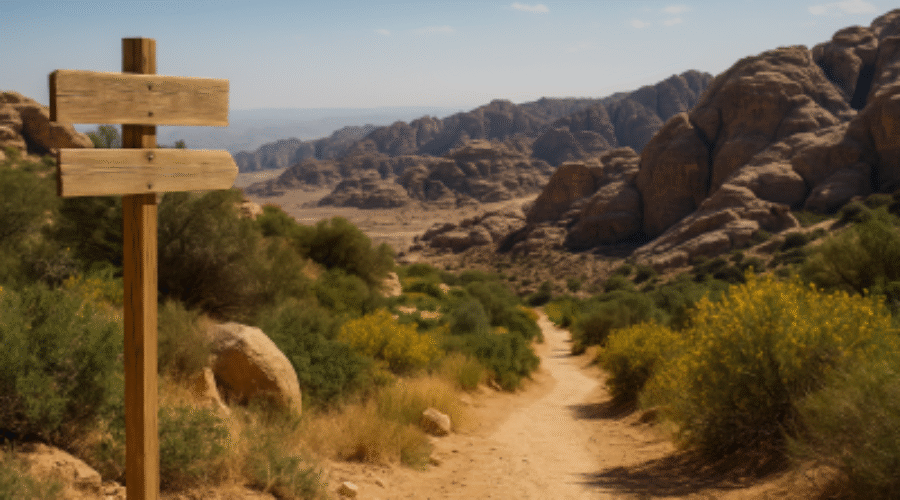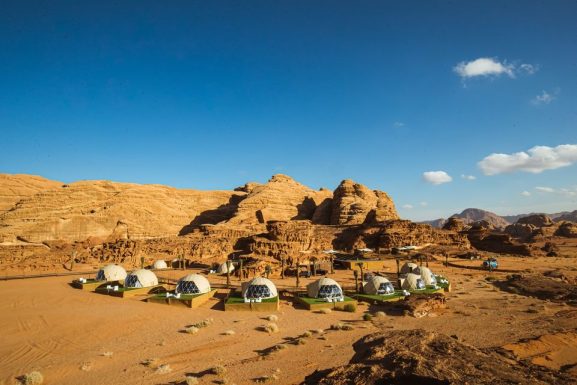Sustainable Tourism and Eco-Tourism in Jordan
Sustainable Tourism and Eco-Tourism in Jordan: Travel with Purpose
Introduction
Jordan is more than Petra, Wadi Rum, and the Dead Sea. Today, travelers are increasingly looking for ways to explore the country responsibly, making sure their visits benefit both the environment and local communities. This is where sustainable tourism and eco-tourism in Jordan come in. These two approaches to travel are helping Jordan protect its natural beauty, share authentic experiences, and support the people who call this land home.
What is Sustainable Tourism?
Sustainable tourism in Jordan means enjoying the country’s treasures in a way that respects nature, traditions, and people. It focuses on reducing negative impacts while creating long-term benefits. This includes:
- Protecting fragile environments like the Dana Biosphere Reserve and Wadi Mujib.
- Supporting local communities by choosing family-owned guesthouses, local restaurants, and authentic handicraft shops.
- Promoting eco-friendly practices, such as reducing plastic use and encouraging renewable energy in hotels.
Simply put, sustainable tourism is about making travel meaningful today without harming tomorrow.
Eco-Tourism in Jordan
Eco-tourism is a part of sustainable tourism, but it focuses even more on nature-based experiences. In Jordan, eco-tourism is growing fast, with travelers seeking outdoor adventures that connect them directly to the land. Some examples include:
- Dana Biosphere Reserve – hiking through one of the most diverse ecosystems in the Middle East.
- Ajloun Forest Reserve – staying in eco-lodges surrounded by oak and pine forests.
- Wadi Mujib – canyoning and exploring the natural water trails that flow into the Dead Sea.
- Aqaba Marine Park – diving in the Red Sea while supporting coral reef conservation.
These eco-tourism experiences not only let visitors enjoy nature but also help fund conservation projects and provide jobs for local communities.
Why Jordan is a Model for Responsible Travel
Jordan has been investing in eco-lodges, protected areas, and community-based tourism projects for more than two decades. Organizations like the Royal Society for the Conservation of Nature (RSCN) have developed successful models where tourism revenue supports nature reserves and local families.
For example, eco-lodges in Dana and Feynan are not just places to stay – they are centers of community engagement, renewable energy use, and cultural exchange. Visitors leave with more than photos; they leave with a deeper connection to Jordan and its people.
How Travelers Can Support Sustainable Tourism in Jordan
If you’re planning a trip to Jordan, here are simple ways to make your journey sustainable:
- Stay in eco-lodges instead of large resorts.
- Choose local guides and tour operators who know the culture and land.
- Buy handmade crafts directly from artisans in Petra, Madaba, and Jerash.
- Respect cultural traditions, from dress codes to local customs.
- Minimize waste by carrying a reusable water bottle and avoiding single-use plastics.
Small actions make a big difference in keeping Jordan beautiful for generations to come.
The Future of Eco-Tourism in Jordan
With global demand for authentic and eco-friendly travel on the rise, Jordan is positioning itself as a leader in the region. From solar-powered lodges to community-run cultural projects, the country is showing how tourism can be both profitable and sustainable.
For visitors, this means more opportunities to explore Jordan in a responsible way, while knowing their travel choices directly support the country’s people, heritage, and environment.
Conclusion
Sustainable tourism and eco-tourism in Jordan are not just trends — they are essential for protecting the country’s treasures. Whether you are hiking in Dana, diving in Aqaba, or staying with a Bedouin family in Wadi Rum, your journey can leave a positive footprint.
Jordan invites travelers to experience its wonders with care, respect, and purpose — creating memories that last while preserving the land for the future.



